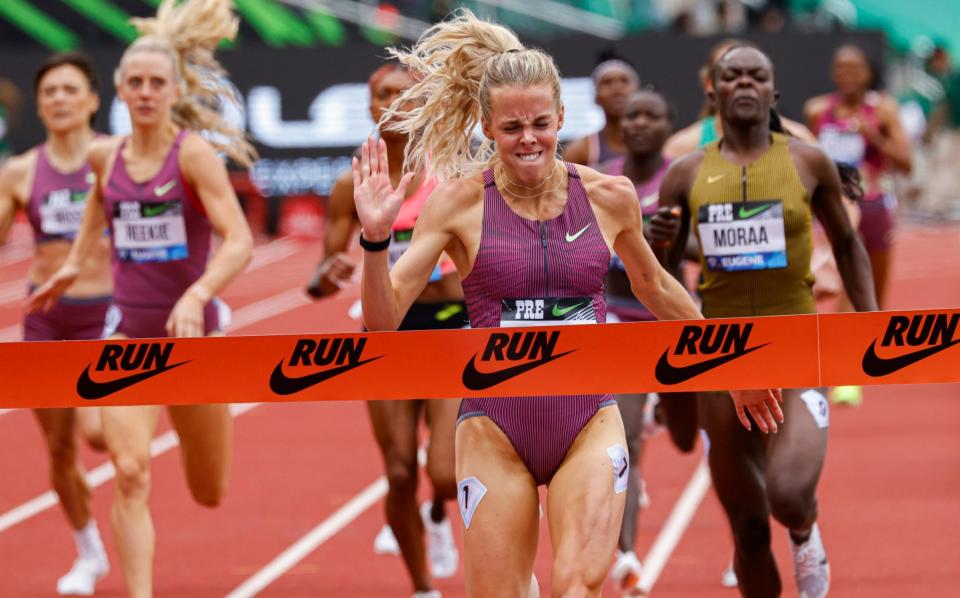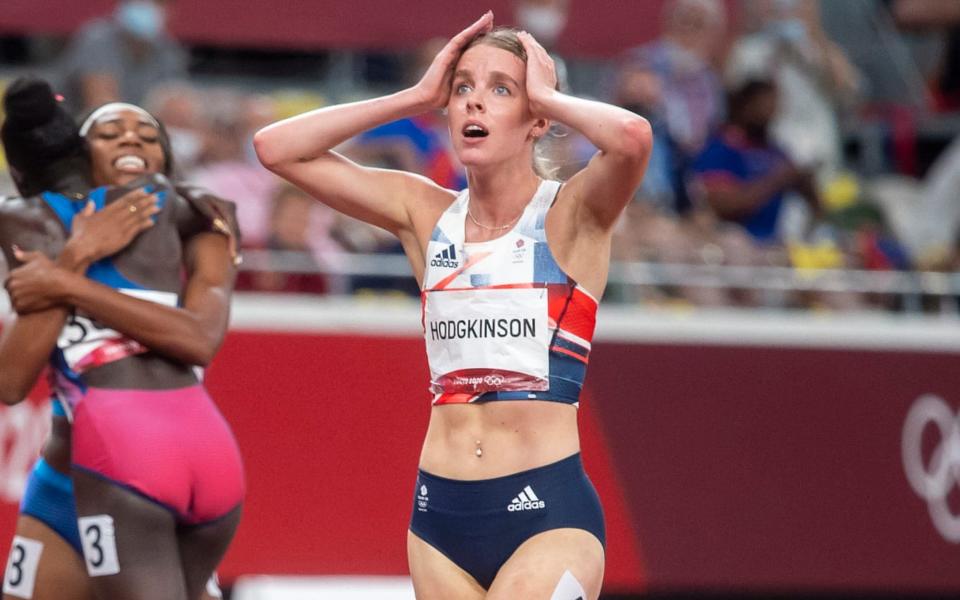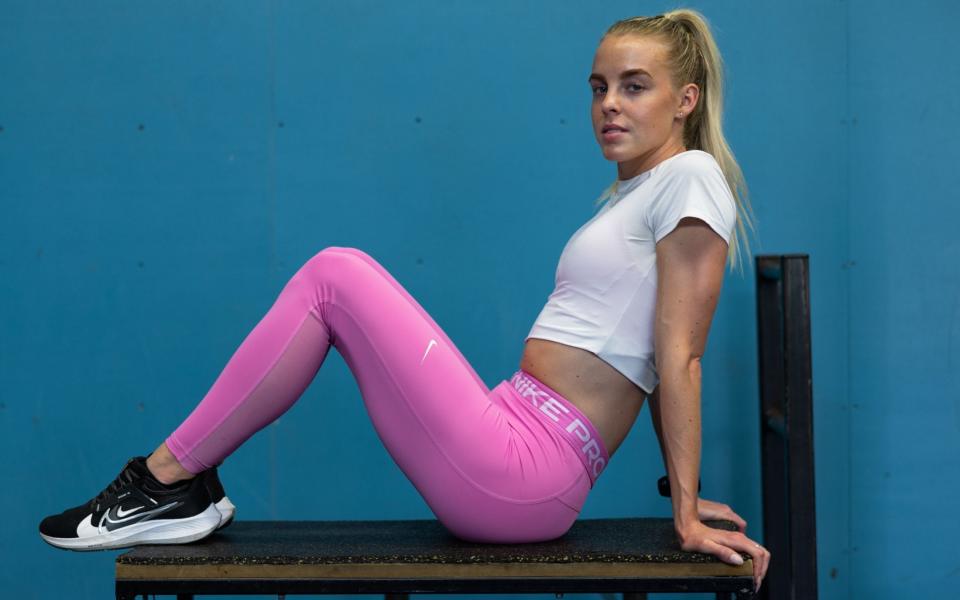
Keely Hodgkinson could emulate Jessica Ennis-Hill as one of Britain’s breakout stars of the Olympic Games and has revealed how the heptathlon at London 2012 changed her life.
Just 10 years old at the time, Hodgkinson had already shown considerable promise as an all-round athlete, mixing cross country with some forays into track events, but had switched his focus to swimming in the early months of 2012.
“I just fell out of love with it[athletics]I didn’t like it for a while, I was doing well but I didn’t want to go training,” she says. “I was swimming a lot… and then looking back at 2012, I saw Jess competing. She was like the golden girl, everywhere, and that really inspired me to come back, to want to do the heptathlon. I dabbled in javelin, but then I thought, ‘I’ll stick with 800m. ’”
It was a choice that, within six years, had been rewarded with the European Under-20 title and, within nine years, had seen her climb onto an Olympic podium. In Tokyo with a silver medal around his neckSince then, Hodgkinson has followed that path with Two silver medals at the World Championshipsto fourth European title and a New British record.
It is no surprise, then, that she begins by saying, with a smile, “But I haven’t let you down so far, have I?” in response to a question about whether we will see an even faster runner this summer. She began her outdoor season by soundly defeating Kenyan world champion Mary Moraa and believes her Olympic preparation may have been boosted by a significant winter injury.

It was previously known that Hodgkinson had suffered a setback that forced her to miss the World Indoor Championships, but it has now emerged that tears to a knee ligament and tendon, which extended to her hamstring, forced her to miss nine weeks of racing between November and January. “For the first two weeks I couldn’t do any cardio because I couldn’t bend my knee,” she says. “After that I was on my bike and the elliptical. It was torture. I had to be patient. It wasn’t ideal. It was a freak accident.
“My physiotherapist thinks I twisted my ankle (training) in Font Romeu and that the damage extended to the knee. I kept running thinking it was something else and then it tore. I had to trust the process.
“It was a blessing in disguise – it allowed me to build back-to-back weeks of endurance, strength training in the gym and speed. I feel like this year is hopefully going to be the best year of my life. I want to take on every race… to see how hard I can push myself.”
Certainly, the sporting arenas in this country have changed in recent years and athletics faces a considerable challenge in breaking into the mainstream consciousness, particularly outside of the Olympic Games.
Hodgkinson believes that recent initiatives by World Athletics to Introduce gold medal prize money at the Olympic Games and launch the lucrative New biennial Ultimate World Championship event These are encouraging steps.

“I don’t think anyone would turn down $50,000 (£39,400 for a gold medal),” he says. “I think it’s great. I know the Olympic motto is about competing as amateurs, but we’ve reached a point where if you compete in the Olympics, you’re not an amateur any more. You’re a professional. That’s true in every sport.”
“Athletics is known for being quite unstable if you don’t win the top medals. It should start at the top but hopefully it will taper off.” Hodgkinson, who went to school with England player Ella Toone in Manchester, cites the example of women’s football. “They’ve invested a lot of money since the Euros which is now reaching the clubs and helping the grassroots. Hopefully we can do something similar.”
Hodgkinson, still just 22, was joined on the Olympic 800m team by 17-year-old Phoebe Gill, who ran a phenomenal 1 minute 57.86 seconds earlier this year and then qualified for Paris. in a time of 1min 58.67sec at the British Championships, which also served as an Olympic selection race.
Hodgkinson says she was left speechless when she heard about the first of those two runs, which was three seconds off her then British record and the best ever achieved by a European under-18.
“She’s still very young, I wouldn’t put any pressure on her at all,” Hodgkinson says. “She just needs to take her time, not get carried away and keep doing what she’s doing. It’s obviously working. She should just have fun.”
A version of this article was first published in June.


